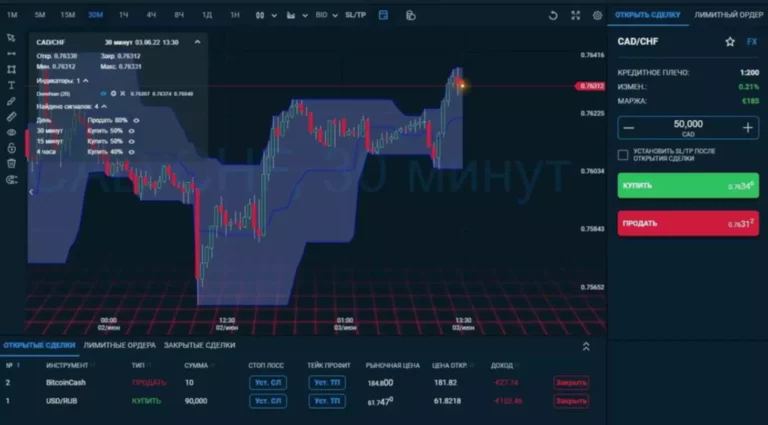Smart contracts eliminate intermediaries in a variety of transactions, streamlining processes like real estate deals as well as digital money exchange and enhancing overall efficiency. Blockchain technology brings process simplification and automation, making everything fast and efficient. As we step into 2024, the blockchain is poised for another year of transformative growth and innovation. The blockchain ecosystem is set to witness several trends that shape industries and redefine user experiences. Here, we explore the blockchain trends 2024 that dominate this year, providing a glimpse into the exciting developments and challenges that lie ahead in the world of distributed digital ledger technology. Today, we will explore a vast blockchain ecosystem, exploring not only its enduring impact but also the emerging trends and Blockchin’s possibilities that promise to reshape the world.

As DeFi (Decentralized Finance) expands its influence in the FinTech scene, it’s also enabling the birth of new facets, like GameFi, SocialFi, and InsureTech. The majority of these platforms owe their existence to Ethereum’s powerful smart contract abilities. DeFi aims to replace middlemen with quicker, superior, and more cost-effective systems, though issues tied to liquidity protocols and user vulnerabilities persist. BlackRock’s recent introduction of a Bitcoin spot ETF has ignited renewed institutional interest in cryptocurrencies and sparked discussions about the implications of investments in the broader financial ecosystem. BlackRock’s decision to hold real BTC over futures contracts in its ETF has encouraged other major players like WisdomTree and Invesco to review applications for their own Bitcoin spot ETFs. They should assess the scalability and performance of different blockchain platforms to ensure they can handle the expected transaction volume.
The importance of interoperability
Here are some of the trends that will be driving this and some thoughts on how this will impact more and more lives over the course of the next year. Now that you know the top 5 Blockchain trends in 2024, it is important to pursue Blockchain education to make the most of this ever-evolving technology. From financial institutions to governments, startups to supply chain industries, Blockchain technology is making its mark in diverse sectors.
Grand View Research
predicts that the global blockchain tech market will reach $1,432 billion by
2030, with a Compounded Annual Growth Rate (CAGR) of 85.9% between 2022 and
2030. Metaverse should become a virtual world that will provide its users with
unforgettable digital experiences. Therefore, the more popular the metaverse is,
the more relevant blockchain technology remains. These tokens
will also remain relevant in the future and among popular blockchain industry
trends.
It is likely that the blockchain will also serve in verifying the educational
credentials of health professionals. So far, this practice has not become so
widespread, but the U.S. company
ProCredEx
has already launched such a service based on the R3 Corda blockchain protocol. In the previous years, there were several implementations of this concept that revealed potential challenges. For example, such systems require creating a business governance model that will guarantee equal rights for all ecosystem players so it won’t be monopolized. On the other hand, previous unproductive experiments can bring to light the sides that need improvement, opening the gates for more progress in the following year.
Blockchain Protocols: The Fundamentals
Blockchain accelerates clearing and settlement in finance, enhances healthcare data security, and enables consent-based patient data sharing. Nonprofits and e-governments utilize blockchain for immutable record-keeping with automated contract execution, etc. So, let’s see several practical examples of blockchain industry trends across industries and domains. Moreover, non-fungible tokens will expand their utility beyond the digital art world. Being a widely spread kind of digital identity and personal avatars, NFTs would likely represent ownership and access to various real-world assets, such as real estate, luxury goods, and intellectual property rights. Together with blockchain-powered metaverses, we expect to see NFT-based virtual concerts, collectibles, educational content, and many others.
While blockchain is still amazing for transaction platforms, it may not be as fast as thought. Second of all, blockchain requires a lot of computing power, and sometimes, a centralized database can be a cheaper and quicker solution. Blockchain streamlines processes, reduces manual tasks, and eliminates unnecessary intermediaries, leading to cost savings and improved efficiency. Since there is no inherited centralized player, the blockchain has no vendor expenses.
Such currencies are not affected by market conditions and have a stable price, mostly because they are backed by fiat money. Our blockchain technology experts have gathered some insights to share with you in this article. Although executives may not yet see the value of using blockchain for many business processes, more and more are embracing it as part of the online token-based economy. Specifically, they’re building new revenue streams by selling digital products and assets through non-fungible tokens (NFTs). From NFT marketplaces like OpenSea to obscure derivatives trading platforms, here are the top blockchain trends we expect to see in 2023 and beyond.

Here, blockchain can be used for document storage, digital notarization, and smart contract execution. This tendency democratizes blockchain adoption, making it more feasible for a wide range of industries; hence, we will see more blockchain everywhere. Blockchain is a sophisticated, decentralized, and distributed digital ledger technology that records irreversible data, such as transactions across multiple devices, in a secure way. It consists of a chain https://www.xcritical.in/ of blocks (as seen from its name), each containing a list of transactions, and is designed to be tamper-proof. When new information is added to a block, it becomes a permanent part of the blockchain, making the stored data irreversible. This sequential data collection is encrypted in blocks, creating a chronologically organized, permanent ledger accessible to authorized users who can control data access, granting or restricting it to other users.
Exploring the Blockchain Trends and Innovations in 2024
These games offer decentralized and transparent gameplay, enabling players to own and trade in-game assets securely. As the focus shifts towards creating enjoyable gaming experiences, the integration of blockchain and NFTs brings a new dimension to gaming, enticing both existing and new users into the world of blockchain technology. One of the most exciting developments in the blockchain trends space is the rise of NFTs.
In doing so, they hope to onboard less savvy users by tapping the family and friends of more sophisticated DeFi investors. And if there’s one complaint industry insiders hear about Web3, it’s how clunky, intimidating, and infuriating it is to use decentralized cryptocurrency wallets (which are required to interact with dApps). As an example, chains like Solana and Avalanche allocated VC money (known in Web3 as Grants) to fund everything from NFT marketplaces to blockchain gaming and DeFi protocols. By combining DeFi incentives into blockchain games (in a practice known as GameFi), dApp builders are able to attract a flood of new users in a short period of time. On the surface, blockchain games are attracting a larger number of new users vs. dedicated DeFi protocols.
The Impact of Blockchain Technology on Ecommerce
This dynamic duo, AI-enabled Blockchain, is set to make a significant impact across various sectors. The industry is witnessing an upsurge in certification programs and industry-recognized qualifications. Academically, more research is necessary to formulate optimal strategies for fusing AI and blockchain, including algorithm designs that harness AI’s prowess while considering blockchain’s distinctive aspects. The U.S. Securities and Exchange Commission (SEC) has amped up its enforcement efforts in the cryptocurrency domain by lodging lawsuits against leading exchanges, such as Binance and Coinbase. Binance and its founder are facing charges for promoting unregulated securities, mismanagement of funds, and participating in wash trading. Coinbase stands accused of functioning as an unregistered securities exchange and dealing in unregistered securities.
- Startups are also using Blockchain technology to develop new products and services.
- Investors could tighten their purse strings for certain use cases, but others – like blockchain-based finance and enterprise applications – will continue to thrive.
- Its applications have expanded
beyond cryptocurrencies and are now prevalent in healthcare, e-commerce,
publishing, finance, insurance, and many other sectors. - These games offer decentralized and transparent gameplay, enabling players to own and trade in-game assets securely.
- Furthermore, a rigorous discussion is provided on Blockchain application in diversified domains, along with different versatile use cases.
Delivering best solutions to its local and global clients it leads to better business all around. So, we can see that Blockchain technology has got a great future ahead and it will not offer a positive impact Blockchain Trends on business enterprises but also will influence human lives. However, in order to resolve any dispute or disagreement between the two parties, the Blockchain is trying to enforce the rule of law.
Instead, blockchain — like most new technologies — is advancing in fits and starts, with the technology bringing radical changes and enabling new business models in some sectors while sputtering along in others. However, as more developers learn the ins and outs of building decentralized applications, both innovation and improvements are happening at an increasingly fast pace. As an example, startup company Finnt allows DeFi investors to set up easy-to-use cryptocurrency wallets for loved ones.
It indicates confidence in Bitcoin’s potential as a mainstream instrument in traditional finance and could improve market stability by curbing volatility. Institutional adoption can democratize access to cryptocurrency investments and shape the future of digital assets. More and more enterprises are adopting blockchain technology to enhance their operations.
Another is by moving to less energy-intensive models of blockchain technology – typically those that rely on “proof-of-stake” algorithms rather than “proof-of-work” to generate consensus. Ethereum – the second best-known blockchain after Bitcoin – plans to move to a POS model during 2022. Another route to a greener operating model is the one championed by Cathy Wood, CEO of tech-focused hedge fund Ark Invest. This posits the view that growing demand for energy will lead to greater investments into generating renewable energy, which will then be used for other applications as well as operating blockchains. The enhanced scrutiny of crypto exchanges by regulatory authorities like the SEC represents a significant shift in the regulatory landscape. While this scrutiny might lead to short-term uncertainty, it could pave the way for more standardized and transparent regulations in the long run.
